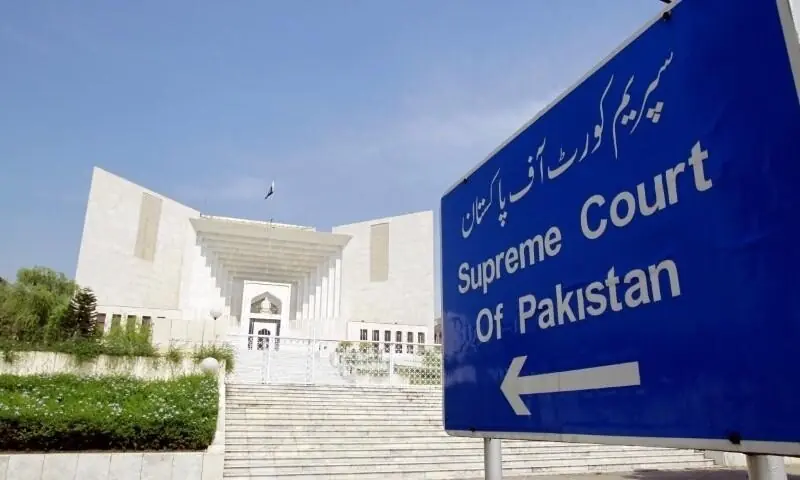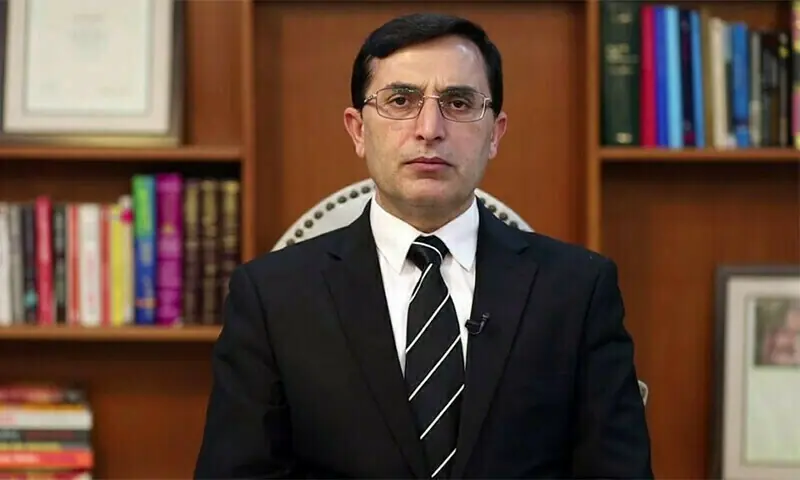ISLAMABAD: The Supreme Court acquitted a 74-year-old Christian man, who was diagnosed with mental illness, of blasphemy charges after quashing the Lahore High Court (LHC) order of June 30, 2014 confirming his death sentence.
Written by Justice Athar Minallah, a three-judge bench of the Supreme Court, while extending benefit of doubt, ordered acquittal of all charges against petitioner Anwar Keneth after accepting his jail plea, but with a direction to release him if not required in any other case.
In a nine-page judgment, the bench comprising Justices Athar Minallah, Irfan Saadat Khan and Malik Shahzad Ahmad Khan also expressed the expectation that the executive director of the Pakistan Institute of Mental Health (PIMH), where the petitioner was being treated, would ensure continuation of his medical treatment.
The blasphemy case against Keneth was registered on September 25, 2001 by the Gawalmandi police for alleged offenses under section 295C of the Pakistan Penal Code.
Bench says elderly suspect was diagnosed with mental illness, but prosecutors failed to prove case beyond a reasonable doubt
The complaint registered by Inspector Nasrullah Khan Niazi was regarding the letter dated August 27, 2001 addressed to a person named Haji Mehmood Zafar and after investigation, a report under Section 173 CrPC was submitted before the competent court. The appellant pleaded guilty to the charge and admitted having written the letter.
The trial court convicted the appellant under section 295C and sentenced him to death with a fine of Rs 500,000. The high court later confirmed the death sentence.
Later in 2014, the Supreme Court received a jail petition sent through the prison superintendent, while the letter was sent to the Council of Islamic Ideology (CII) on March 12, 2024.
The PIMH medical board later diagnosed that the petitioner was suffering from “bipolar affective disorder” (a disorder that causes extreme mood swings, including emotional highs and lows) and that the mental disorder was in the “hypomanic” phase. The medical board also recommended admission of the appellant to the institute for treatment.
In its order, the Supreme Court regretted that the prosecution in the case produced only two witnesses, Maulana Naeem Akhtar Adnan (PW-1) and Haji Mahmood Zafar (PW-2). The investigator in this case did not enter the witness stand. It appears that the prosecution, apart from producing two witnesses, made no attempt to prove its case against the appellant, the order rued.
The ruling said that the appellant professes the religion of Christianity and that the letter attempted to propagate and profess his faith with the statement that he “belonged to the tribe of Judah and was a descendant of King David.”
The appellant claimed to be the ‘King of Israel and to rule the whole world’ and stated that the ‘great Lord of Heaven will establish the Kingdom in Israel’.
In his letter, he attempted to build an argument that his faith was the true religion, according to the ruling, adding that the entire letter showed unambiguously that its author suffered from some mental disorder.
The appellant’s conduct during the investigation and trial was not that of a sane person, according to the ruling, adding that the content of the letter reflected signs of grandeur, hallucinations and delirious flights of ideas.
Although the anomaly was obvious from the conduct and content of the letter, neither the prosecution nor the trial court had the appellant medically examined by specialists in the field of psychiatry.
According to the ruling, the crime provided for in article 295C is criminal and is punishable by the death penalty. He added that it was an established principle of the criminal administration of justice that the prosecution had to prove its case against an accused beyond reasonable doubt and was not relieved of this obligation if the accused had failed to prove a claim in his defence.
The appellant was not aware that his actions were influenced by the mental disorder he suffered from, the ruling states, adding that guilt of the crime for which he was accused required establishing the ‘actus rea’ and the ‘mens rea’.
The medical board’s ruling raised serious doubts about the existence of criminal intent or ‘mens rea’. The CII, in its interim report, rightly observed that followers of all religions enjoy the right to profess, practice and propagate their respective beliefs, but the exercise of such right is subject to law, the judgment said.
Published in Dawn, October 11, 2025









